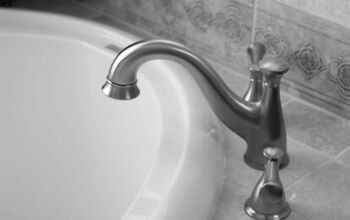How Long Do Brita Filters Last? (Find Out Now!)

Filtered water is not only healthier for you, pulling out dangerous contaminants from tap water, but it is a convenient and easy way always to have water at your fingertips. Brita is a popular brand that makes several water filtration devices to help bring you safe and delicious tap water. While having filtered water is a modern convenience, it does require a little upkeep to ensure that your Brita water filter is regularly changed to allow the filter to work to its intended ability.
Most Brita filters will last for 40 gallons of filtration, providing high-quality water. It takes about two months to pour 40 gallons through the Brita water filtration pitcher for an average household. Brita also makes a high-performance filter, called the Longlast Filter, which only needs to be changed every 120 gallons or about every six months.
Keeping your water filter changed will help keep your water tasting great and help keep you healthy. After about two months of use, your Brita filter will no longer be able to absorb the organic materials, metals, and chemicals swirling through tap water. Further, using an expired water filter can create a high bacteria density, which could eventually make you sick. Always follow the electronic indicator or hand-written sticker to keep on track with regular Brita water filter changes.
How Do You Know When Your Brita Filter Needs Changing?
Some Brita filters are fitted with an electronic indicator that will let you know when to replace your water filter. When you insert a new filter into your Brita water pitcher, you will want to activate the indicator. To activate the indicator, press and hold the “status” button for about two seconds. This step will start the indicator, letting it know that you have just inserted a new filter.
For Brita filters that do not have an electronic indicator, you can use the sticker provided with your Brita filter. When you replace your Brita filter, simply write the date on the sticker. After two months have passed, replace your expired filter with a new replacement filter to keep your water fresh.
Do Different Brita Filter Models Last Longer Than Others?
There is a wide range of available Brita devices on the market, each with its own filters. As a general rule, the filter in your Brita should be replaced about every 40 gallons, which usually is about two months. However, some models of Brita filters are intended for high usage and can last a long time. Here are some typical lifespans of popular available Brita filter models:
- Brita Standard (White) Filter – Change After 40 Gallons
- Brita Longlast (Blue) Filter – Change After 120 Gallons
- Brita Stream (Gray) Filter – Change After 40 Gallons
- Brita Water Bottle – Change After 40 Gallons
- Brita Faucet – Change After 100 Gallons
How Do I Change a Brita Filter?
Changing the filter in your Brita is easy to do and only takes a few minutes. It is a good idea to have replacement filters on hand so that you can rotate through new filters about every two months. Brita filters are often sold as a single pack or multi-pack always to give you a new filter close at hand. To change a Brita filter, you must:
Step 1: Remove Old Filter
Pull the old filter out of your Brita. Allow this filter to fully dry and package the filter to be mailed and recycled (see below).
Step 2: New Filter
Take the new Brita filter out of the packaging and rinse it with cold water for about 15 seconds before placing the filter into your Brita pitcher. Insert the new filter, ensuring that the filter lines up with the groove on the filter ridge and the edge of the pitcher.
Step 3: Flush
Be sure to run about three cycles of filtered water through the Brita filter. This amount should be enough to remove any residual carbon from the filter. After the third pitcher of water, your Brita filtered water should be safe to drink. Don’t waste the water you flush from the system. While it may not be suitable for drinking water, it is still excellent to water your plants.
How Does a Brita Filter Work?
Brita filters work by using a carbon filter to help attract and contain contaminants. The carbon works to soak up contaminants that are found in the tap water. The large filter acts like a sponge and will attract organic compounds, chemicals, and metals floating through your water. Common contaminants trapped by the Brita filter include copper, lead, mercury, chlorine, and pesticides. Once the water safely passes through the sponge-like carbon in the filter, the resulting water is purified, clean and drinkable.
Though, it’s important to note that the activated carbon filter cartridges found in Brita pitchers aren’t actually filters at all. A filter captures and prevents a particular substance from going through it. Whereas, an activated carbon cartridge lets water flow over the carbon while soaking up some of the chemicals and metals in the water.
Since activated carbon does not entirely remove all of the contaminants that can make your water taste unpleasant – like high levels of chemicals, metals, or salt – you may want to consider opting for a reverse osmosis drinking system to fully purify your drinking water.
Though, there are several types of Brita filters, some with more robust filters than others. Be sure to closely read the package for the Brita filter you are purchasing to find a filter to remove common contaminants found in your local drinking water.
How Long Do Brita Filters Remove Chlorine?
The presence of chlorine in municipal water is one of the main reasons why people choose to purchase a Brita water filter. Chlorine has an unpleasant odor and taste that can make your water less appealing to consume. The chlorine levels found in municipal water vary from household to household. This means that how long your Brita filter lasts can depend on the level of Chlorine in your water.
For example, if your water has a high level of Chlorine, your Brita filter may not last as long as if you had a lower level of chlorine in your water. Your Brita water filter utilizes carbon to remove chlorine from water, but the carbon is only effective for so long and high levels of chlorine can decrease the effective life of the carbon in a Brita filter.
Is It Safe To Drink From an Expired Filter?
Brita filters work with a carbon-based “sponge” to trap contaminants in your water. When they become too saturated, they cannot absorb more contaminants from your water. Once a filter is saturated, it expires, usually, after about 40 gallons passing through the filter.
While drinking from a recently expired filter isn’t necessarily dangerous, it may not be the best idea. Drinking water from an expired Brita filter will probably not send you to the hospital, but it can make your water taste different or smell differently.
Of course, it can be dangerous if you drink from an expired water filter in areas with an extremely high number of contaminants in the water. It is good to check with your local water authority ahead of time to better understand the type of water contaminants and the concentration of water contaminants you have in your area. If your water is deemed unsafe, then drinking from an expired Brita filter can be extremely dangerous.
What Happens if You Don’t Change Your Brita Filter Often Enough?
If you leave your Brita filter in the dispenser for too long, bacteria can develop and it make cause your water to be worse instead of than batter. Because the Brita filter works to pull out chemicals, metals, and organic matter into a carbon-based sponge filter, there can be several contaminants residing in your filter. Luckily, the filter is replaced every few months to remove these contaminants.
Failure to replace the Brita filter, though, can increase bacteria. In fact, the high mineral density, coupled with trapped organic matter, can turn into a virtual breeding ground for bacteria. Eventually, the filter will become saturated, unable to absorb more bacteria. At this point, the filter is considered expired and must be replaced. If you do not replace the filter, the bacteria can go straight into the water that you use to drink and cook with, possibly making you sick.
Leaving an expired filter in a Brita device for too long can have the opposite impact the filter was designed for. In recent tests, the water that came out of a saturated Brita filter contained 10,000 times more bacteria than water that just came straight out of the tap faucet.
Are Brita Filters Recyclable?
We all like to leave a minimal footprint on the earth, so recycling is a key part of our efforts to make as little impact as possible. Brita has recently partnered with TerraCycle, which helps recycle the Brita filters you would typically throw into the garbage and subsequent landfill every few months.
The recycling program simply sends you a free shipping label via email. You can then pack up your old filters, attach the free shipping label, and send the old filter away to be recycled. Make sure that the contaminated filters are dry before packaging them. More information about the filter recycling program is available on Brita’s website.
Do Other Water Filters Last Longer?
While Brita seems to have the edge on the competition regarding popularity and availability, there are many Brita filter alternatives, some with a longer lifespan that requires less frequent filter changes. The Berkey filter system is a large pitcher of water that will sit on your tabletop, dispensing purified and filtered water right at your fingertips.
This water filtration system only needs a new filter system every 6,000 gallons, compared to every 40 gallons for a traditional Brita water filtration system. Although, the Berkey system does have two different filters; so both will need to be replaced at the same time.
The Aquagear water filtration system is another Brita alternative that has a longer filter lifespan. Similar to many Brita pitchers, the Aquagear is a small pitcher of water that can easily fit in your refrigerator. Compared to the Brita water filter, though, the Aquagear alternative lasts about four times longer.
Each filter in the Aquagear filtration system will last about 120 gallons before replacement. For those looking for a portable option, the LifeStraw water bottle can provide filtered water with a long-lasting filter. The LifeStraw filter can last for up to 1,000 gallons of use before it must be replaced.
Related Questions
Why is there black stuff in my Brita?
The carbon present in Brita filters may be the reason for your filtered water turning black. This is especially the case when you’ve recently changed the filter, as new Brita filters are more prone to containing loose carbon particles and dust that can make their way into your water.
Why is my Brita pitcher green?
The most common reason for the water in a Brita pitcher to turn green is algal growth, caused by not cleaning the pitcher often enough. It can also happen when you leave the pitcher in direct sunlight or when you use well water.
Do Brita filters remove minerals?
No, the activated carbon and ceramic filters used in Brita filters do not eliminate minerals from your tap water.

We are a team of passionate homeowners, home improvement pros, and DIY enthusiasts who enjoy sharing home improvement, housekeeping, decorating, and more with other homeowners! Whether you're looking for a step-by-step guide on fixing an appliance or the cost of installing a fence, we've here to help.
More by Upgraded Home Team



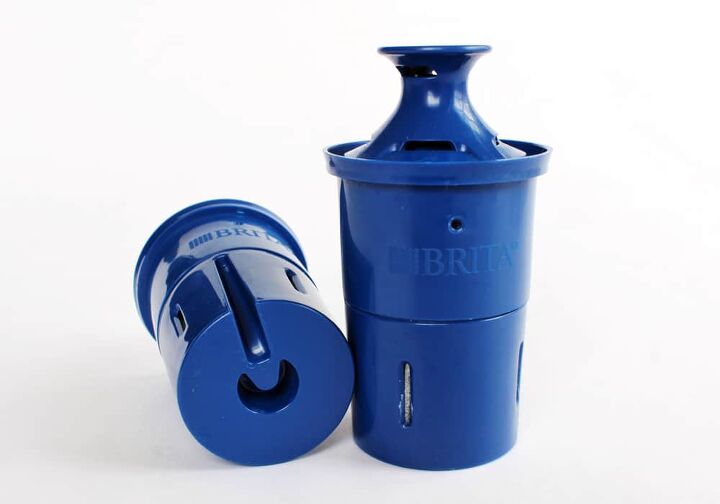






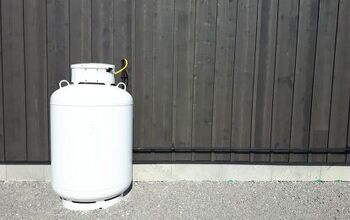
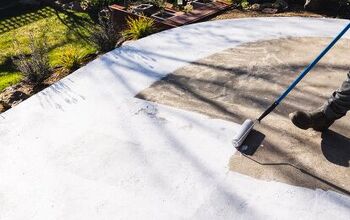
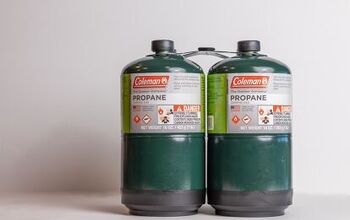

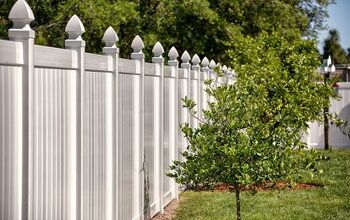

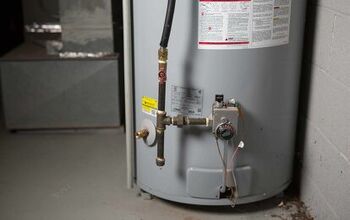




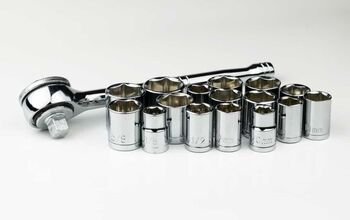


![Cost To Drill A Well [Pricing Per Foot & Cost By State]](https://cdn-fastly.upgradedhome.com/media/2023/07/31/9074980/cost-to-drill-a-well-pricing-per-foot-cost-by-state.jpg?size=350x220)


